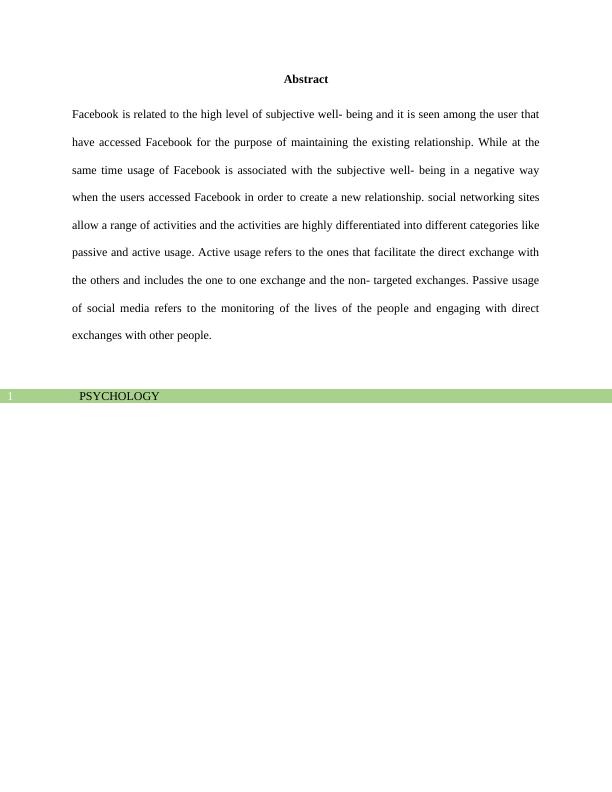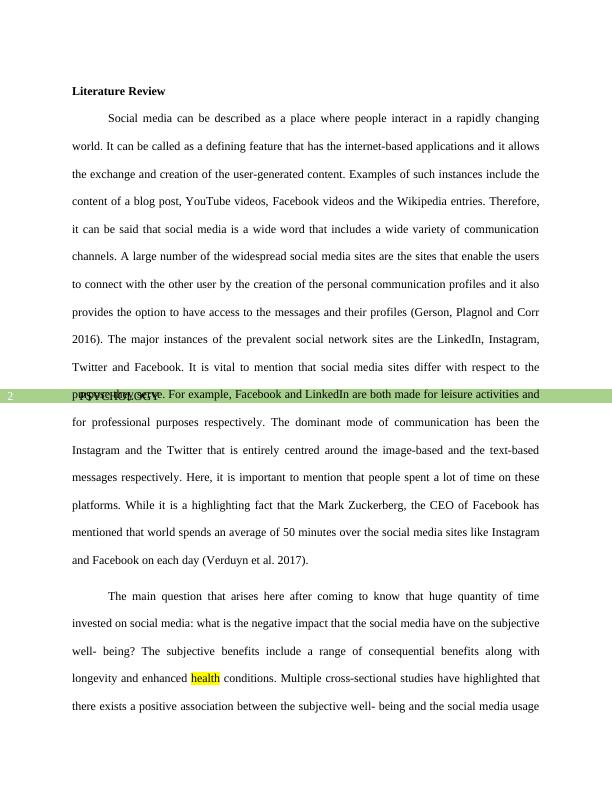Negative Effects of Social Media on Subjective Well-Being
Added on 2023-01-11
8 Pages2163 Words71 Views
End of preview
Want to access all the pages? Upload your documents or become a member.
Social Networking: Advantages, Disadvantages, Privacy, and Security
|11
|1057
|275
Negative Impact of Social Media on Consumer
|15
|692
|94
Analysis of Telstra Social Media Tools
|19
|3937
|100
Unlocking Business Success: The Importance of Digital Marketing Tools
|6
|1606
|53
Presentation on Social Networking Sites
|14
|667
|209
Impact of Social Media on Mental Health of University Students
|9
|3518
|86



